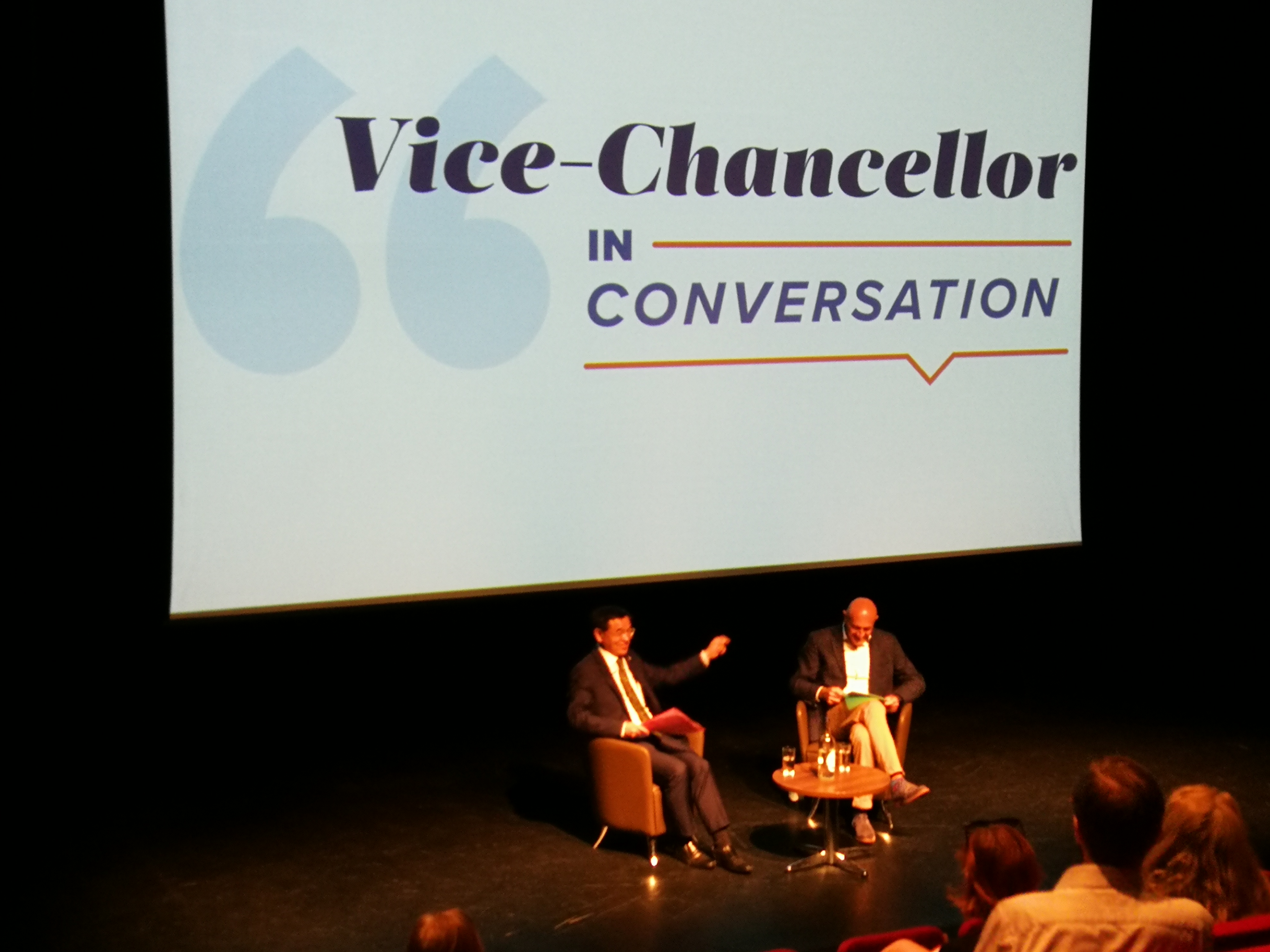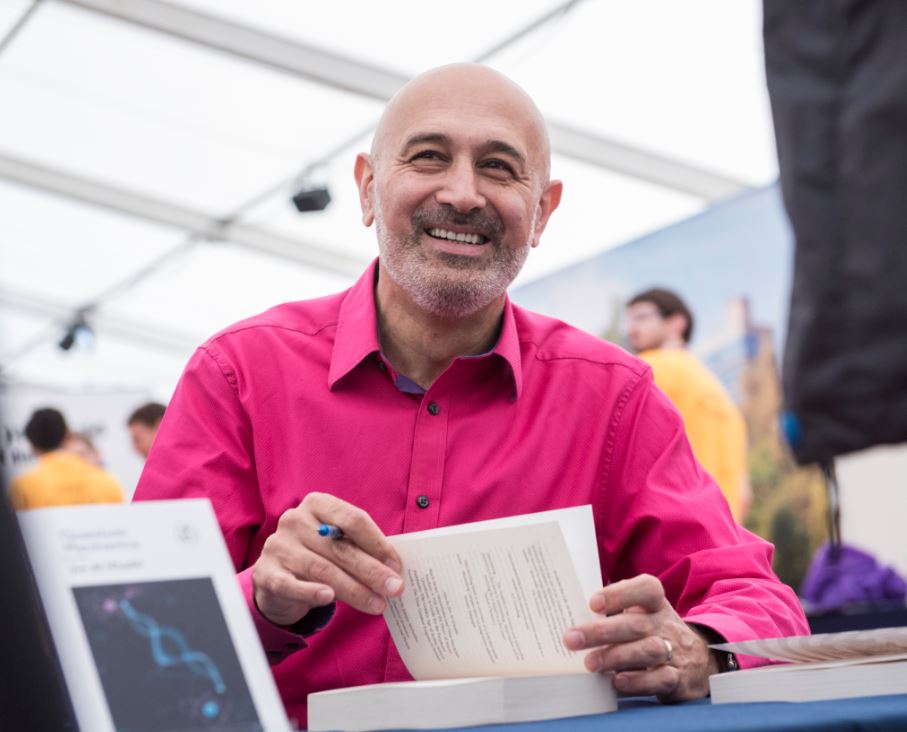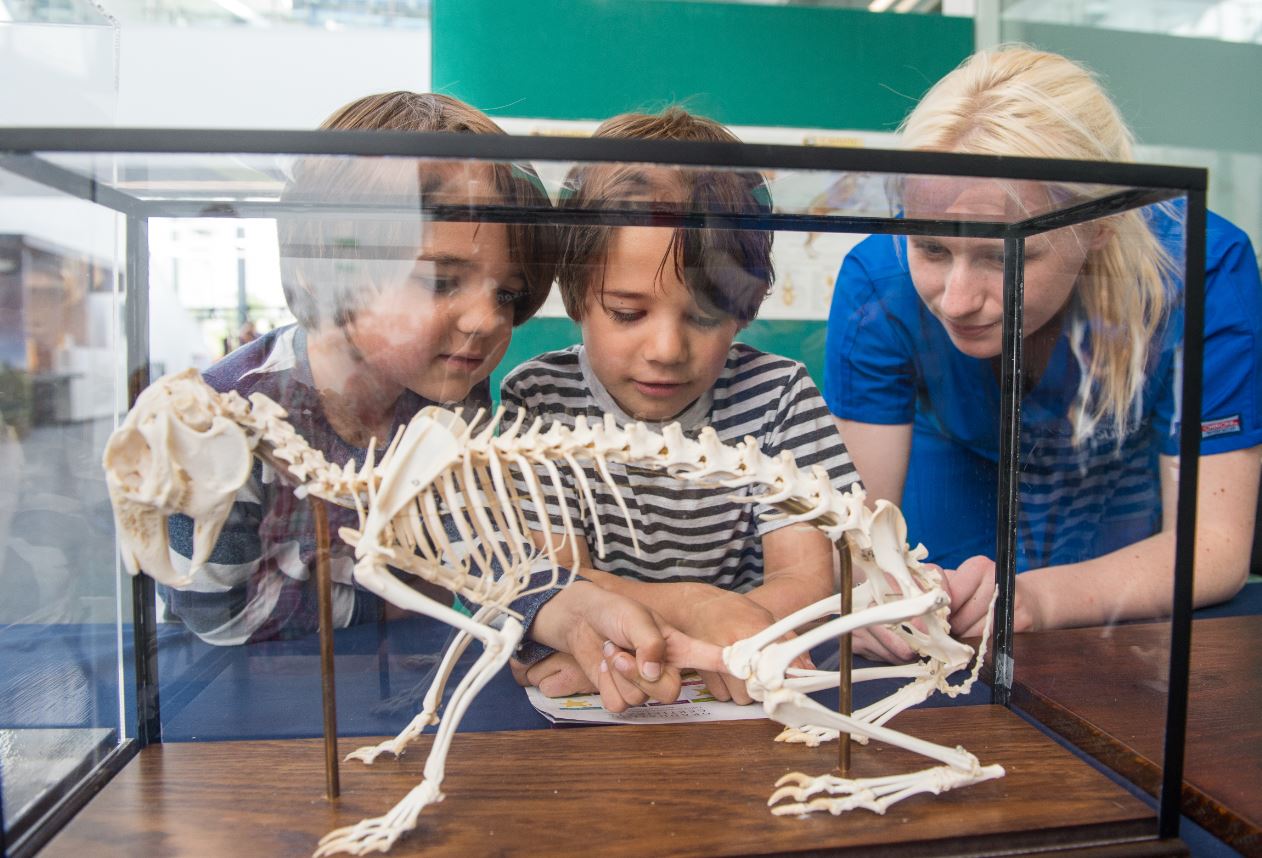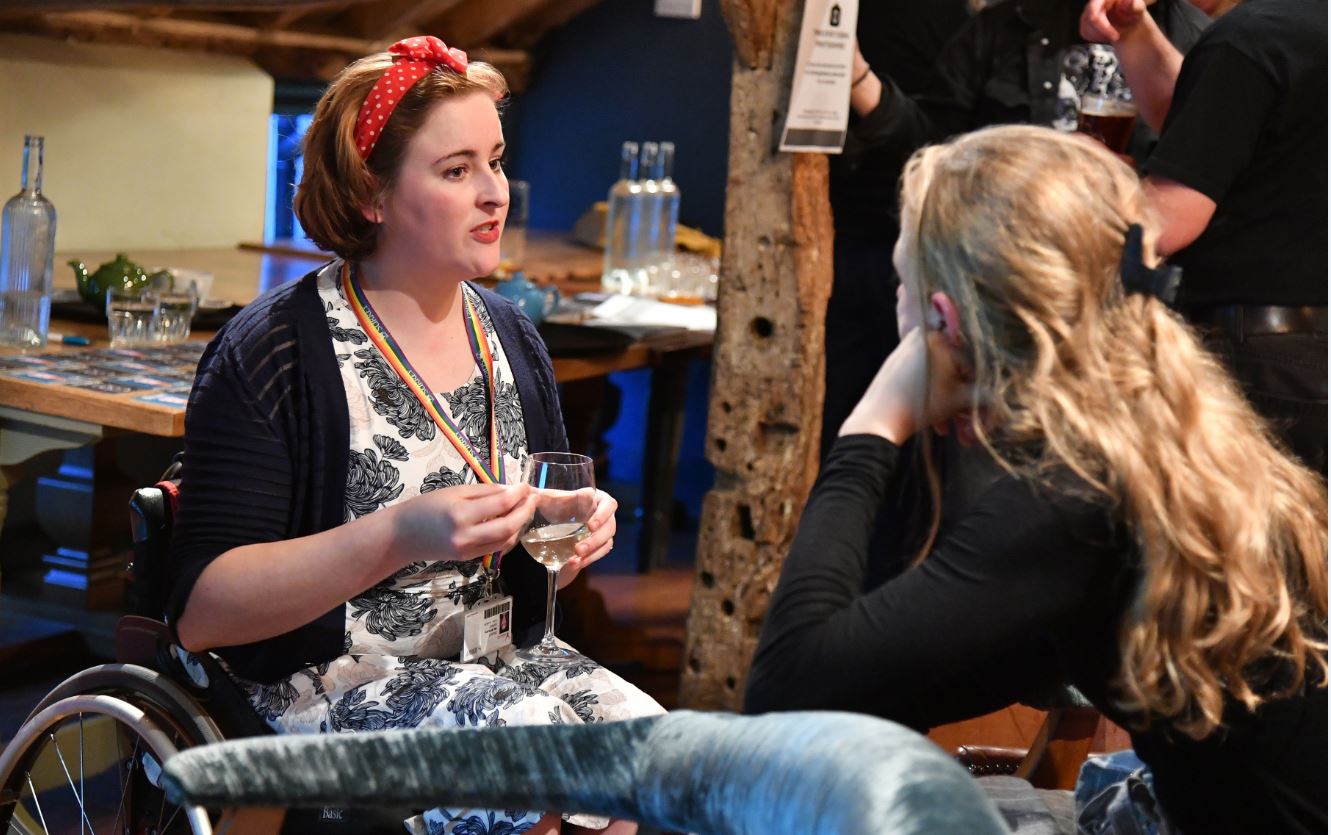Not long ago I wrote a blog about our community engagement the University of Surrey.
Recently I had the chance to discuss another thread in the engagement tapestry: academics sharing and discussing their research with the public. This was the inaugural event in the ‘In Conversation with the Vice-Chancellor’ series of discussions; it was a good start, with a small but well-versed group of staff keen to participate and discuss the topic.

July 2019
I was privileged to have Jim al-Khalili acting as host for the conversation; with his distinguished record in public engagement – or ‘outreach’ — he has quite a lot to teach colleagues about why sharing our passion is so important, especially for the next generation.

Jim al-Khalili at the Festival of Wonder, 2017. Credit: Grant Pritchard Photography
What is public engagement? For academics, it’s the mind-set that the community has a stake in what we do; it means establishing within the university a culture of looking outwards. It’s certainly not the same as publishing papers in academic journals or delivering lectures – and most importantly, it’s not the implication that academics are doing the community a favour.

Festival of Wonder 2017. Credit: Paul Stead Photography
Instead, we are more and more accountable to the public to demonstrate the impact of our work done with public funding and support. By doing so, we perform the valuable act of connecting the modern university with its roots, values and purpose. This is particularly important for the delicate balance of trust between academia and the wider public: it must be crystal clear that the ethical implications of our research are above reproach. Further, through public engagement the University keeps our work relevant to societal needs and local concerns, as well as to the grand challenges of our time. And finally, with thought leadership we contribute to public debate and discourse, which is an important responsibility in a time of great political upheaval and uncertainty (someone has to balance, explain and debunk the politics!).

Pint of Science Festival 2019. Credit: Grant Pritchard Photography
Of course, public outreach/ engagement does enhance one of our ‘core values’ – Collaboration. And support flows back to us from the community, without which we couldn’t fulfil our mission and meet the challenges that HE faces. Further, academics who develop the ‘soft skills’ of communication find it far easier to convey the impact of their research – and this, of course, is of direct relevance when they are applying for funding. Public engagement and outreach is a key aspect of both the Research Excellence Framework and Knowledge Exchange Framework, which now recognise impact through public engagement as a legitimate channel of the ‘altmetrics’ stream of research metrics. And industry, recruitment, advancement and alumni activities often generate positive reception with a talk by an academic. Public engagement is happening quietly all the time, not just in the big events and the ‘star’ academics.

Festival of Wonder 2017. Credit: Diem Photo
Public engagement doesn’t suit every temperament, but for those who enjoy it, it must be a good choice that is sanctioned and supported by the University at every level. And, for those who want to develop the skills, ideally training would be available – perhaps a new offering by the Doctoral College? I know that in 2015 at Surrey, the Agile Innovation Programme began its very successful two-year project to train 2nd Year engineering and physical sciences PhD students in the art of demonstrating and defending the academic, social and economic impact of their research to a diverse ‘lay’ audience; the goal here was to develop their knowledge and skills to pursue commercialisation of their ideas. So there is clearly a precedent.
Public and industry engagement will certainly form part of a portfolio of evidence of engagement. And academics are so passionate about what we do, that no matter what we call it or how we measure it, ultimately it’s just about communicating the wonder that first drew us to our speciality, and sharing why we fell in love with it in the first place.

Festival of Wonder 2017. Credit: Diem Photography
Above all, public engagement should play to an academic’s individual strengths. As Jim pointed out, his recent talk about ‘Black Holes & Aliens’ to a class of 50 eight-year-olds might not be in everyone’s comfort zone!
One of the questions from the audience was: What is the role of the Public in Public Engagement?
Good question!
If we’re getting our research explained well and understood, we can see it in the faces of those we talk to. In return, we get valuable feedback, new suggestions and clear direction. After all, nothing of value ever resulted from anyone working in isolation – where minds meet, inspiration strikes.
Jim has previously remarked that the UK leads the world in public engagement, with many other countries and their academic institutions looking to us as a model they strive to match. I’d love to think this is true: I know colleagues at the University of Stockholm were amazed and impressed by the extent of Surrey’s outreach. Social media, as ever, reflects a range of strong opinions about this topic – and this is good too, because even dissent is engagement, with informed debate leading to better understanding and new ideas.
Are you passionate about what you do and like to share it with the world? Engage with the public in any way you can, be it giving a talk to school children, or speaking to a local audience in the next Pint of Science event, or indeed talking to an interested journalist who wants to know more about your work. You will change at least one life – your own! – and likely many more.
